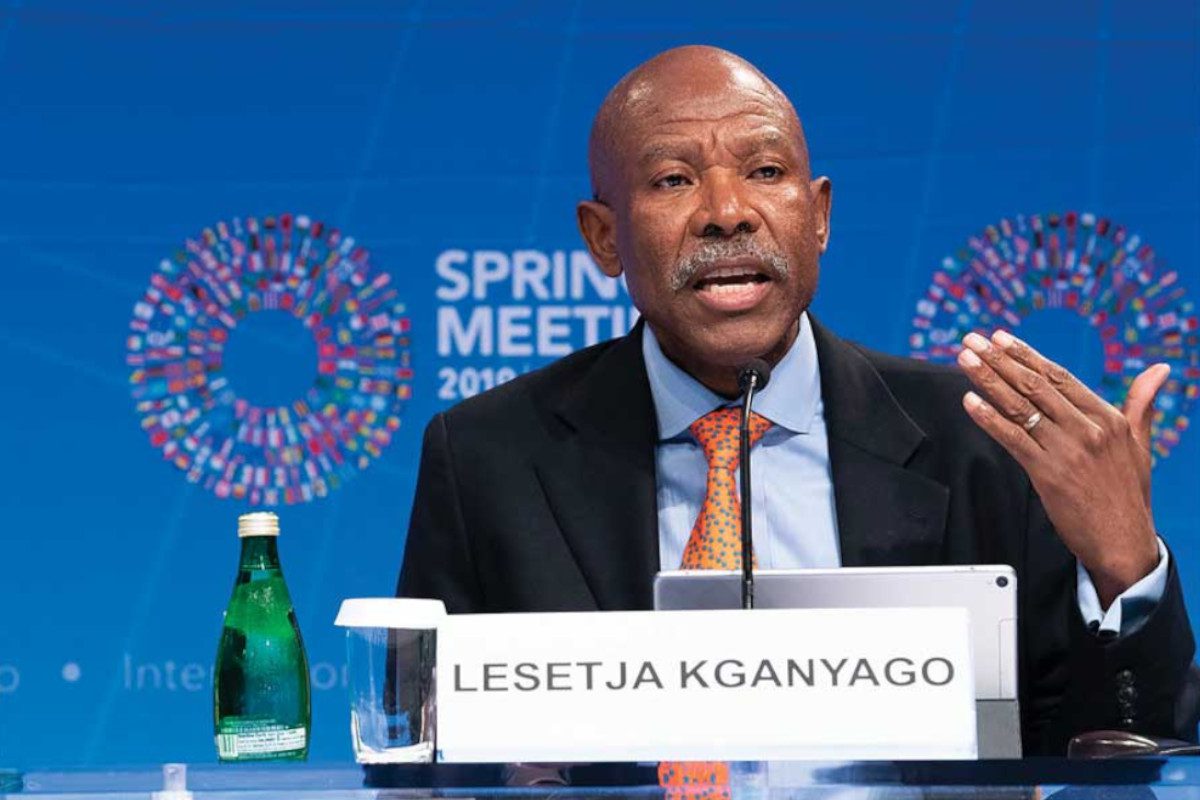Global Courant 2023-04-28 19:00:49
Most economists and investment specialists expect another rate hike from the South African Reserve Bank (SARB) when its Monetary Policy Committee (MPC) meets next month.
Last month, the SARB surprised the market when it hiked rates by 50 basis points, pushing the repo rate to 7.75% and the prime lending rate to a 14-year high of 11.25%.
Before this hike, many experts thought the SARB’s hiking cycle would end soon, as the March hike marked the ninth straight rate hike since November 2021.
However, the SARB has remained steadfast in its mission to bring inflation within its target range of 3% to 6%, anchoring expectations around the middle of this range (4.5%).
Recent consumer price inflation (CPI) data for March showed this target slipping away, as the CPI accelerated to 7.1% and food inflation hit a 14-year high.
Experts are therefore slightly less hopeful of a postponement of their expectations for the meeting of the monetary policy committee (MPC) in May. Many predict a continuation of the walking cycle and little relief for the rest of 2023.
Daily Investor asked nine experts about their interest rate expectations for May, and most predicted a 25 basis point increase.
Jeff Schultz – BNP Paribas South Africa senior economist
Prediction: 25 basis points increase
“Following the SARB’s more aggressive 50 basis point hike in March, we think a final rate of 8.00% as early as next month remains very plausible,” said Jeff Shultz, senior economist at BNP Paribas South Africa.
However, he said a lot depends on the data and the exogenous environment.
The MPC has repeatedly emphasized the importance of nipping rising inflation expectations in the bud. Therefore, the March CPI data “probably won’t help”.
Shultz expects inflation to remain sticky and well above the SARB’s target range in March and April. He therefore thinks it will be difficult for the SARB to interrupt its walking cycle as early as the MPC meeting in May.
“We also think the bank is concerned about mounting uncertainties in the exogenous environment (global banking sector and tightening financial conditions), which it fears could ‘raise the risk profile of emerging markets’, capital outflows and weaker currency performance.”
He said relief in the form of rate cuts is not likely until the first quarter of 2024. He expects 100 basis points of cumulative cuts (25 basis points per meeting) from March 2024.
Hugo Pienaar – chief economist at the Bureau for Economic Research
Prediction: 25 basis points increase
Hugo Pienaar, chief economist at the Bureau of Economic Research, expects the MPC to raise the repo rate by another 25 basis points in May.
Dawie Roodt – chief economist of the Efficient Group
Prediction: 25 basis points increase
Dawie Roodt, chief economist at the Efficient Group, said the March CPI data was “a real shock”. He expected the CPI to fall to 6.7%, but it rose to 7.1%.
Roodt said he was particularly concerned about the sharp increase in food prices that led to higher inflation in March.
“Before the last CPI print, I thought the SARB would stop their tightening cycle – keep rates going – but now I think they will rise again,” he said.
However, Roodt noted that while monetary policy is moderately restrictive because it dampens demand, fiscal policy is highly expansionary. This means that the Treasury Secretary and the SARB are “moving in opposite directions”.
Mamello Matikinca-Ngwenya – chief economist of the FNB
FNB chief economist Mamello Matikinca-Ngwenya said she expects the SARB MPC to keep repo and prime lending rates unchanged.
“After a cumulative increase of 425 basis points in the current cycle, the SARB should now take the time to assess the impact on demand and inflation,” she said.
“Risks are being tilted to the upside and the MPC is likely to apply further monetary tightening, determined to contain sticky inflation (especially if our external fragility worsens and the rand further weakens) and inflation expectations above the preferred anchor of the SARB. 4.5%.”
Xhanti Payi – PwC South Africa senior economist
Prediction: 25 basis points up
PwC senior economist Xhanti Payi gave five reasons why he expects the SARB to raise interest rates by another 25 basis points.
The first reason is related to headline inflation, which remains stubbornly above the SARB’s target range. He said March inflation data would have related to the reserve bank.
Payi said inflation is also likely to remain high as there is still pressure on the upside given high oil prices after some oil-producing countries decided to cut production.
The second reason is related to core inflation, which remains “uncomfortably high” at 5.2% year on year in March.
This is above the midpoint of the SARB’s target range. The reserve bank has also expressed concern about this level of core inflation, he said.
The third reason Payi expects a 25 basis point increase, rather than another aggressive 50 basis points, is because the SARB has limited room for increases as high as the March increase.
“This is due to the string of negative economic data we have seen for February 2023: manufacturing output -5.2 year-on-year and -1.3 month-on-month; retail sales -0.5% yoy and -0.1 month-on-month; car sales -1.5 year on year; and wholesale sales -1.9% year-over-year.”
Fourth, the SARB began this hiking cycle as “normalizing” interest rates. However, the country is now clearly above the last cycle of hikes.
Finally, the SARB remains steadfast in its mission to anchor inflation expectations.
“And so they will be motivated to walk again.”
Maarten Ackerman – Chief Economist of Citadel
Prediction: 25 basis points increase
Citadel chief economist Maarten Ackerman said the SARB’s rate hike in March was driven by higher-than-expected inflation data and an expectation that inflation will continue to rise.
The latest CPI data confirmed this expectation and combined with the weakening rim, he expects inflationary pressures to persist for some time.
Ackerman said there is therefore a strong case for another hike in May, although perhaps not as aggressive as the 50 basis point hike in March.
Lourens Pretorius – Matrix Fund Managers fixed income portfolio manager
Prediction: 25 basis points increase
Lourens Pretorius, fixed income portfolio manager of Matrix Fund Managers, said the SARB’s aggressive rate hike in March leaves monetary policy at arguably restrictive levels compared to the Reserve Bank’s quarterly projection model.
Given the likely forward-looking inflation profile, this model suggests a policy setting of 7.0% to 7.25%.
With its hike in March, the SARB showed that it is focusing more on inflation than growth, as it reduced the economy’s potential growth to just 0.1% for 2023.
It therefore left little room for capacity constraints in the economy, which is inflationary by nature.
The recent headline inflation data from March also surprised slightly on the upside at 7.1%, with a marked increase in inflationary pressures and food inflation (14.6%) as the dominant factor.
Pretorius said he expects inflation to benefit from the strong base effect easing after the anniversary of the Russia-Ukraine war. However, he also expects the SARB to grow weary of the risks associated with this outlook.
This fatigue is mainly driven by the current account turn from surplus to deficit for the first time in three years and the effect this will have on the rand.
“We think the SARB is likely to raise the repo rate by another 25 basis points to 8.0% in May and halt the current tightening cycle until there is sufficient evidence that inflation, as well as longer-term inflation expectations, are moving closer to the mid-range. the inflation target (4.5%).”
Pretorius also expects some mild adjustment to 7.0% once inflation has re-anchored.
Arthur Kamp – chief economist of Sanlam Investments
Prediction: 25 basis points increase
Chief economist at Sanlam Investments Arthur Kamp said the SARB’s MPC is concerned about high inflation expectations, tight global financial conditions and the risk of a weakening of the rand amid tightening US monetary policy.
These concerns were also at the center of the meeting in March, where an aggressive 50 basis point increase was announced.
Kamp said the rand’s continued weakness poses an inflationary risk and therefore the US Federal Open Market Committee meeting in early May 2023 is an important event to follow.
South Africa’s current account deficit is also putting pressure on the rand, creating a dilemma for the SARB, which must choose between curbing inflation or providing relief to an ailing economy.
However, Kamp specified that the SARB was not causing South Africa’s growth problem. Instead, the problem reflects failing infrastructure, over-involvement of government in economic activities, policy uncertainty and low business confidence.
He said the best solution is for South Africa’s economic reform momentum to gain momentum to raise potential economic growth, attract foreign capital inflows to fund investment and ease pressure on the balance of payments and the rand.
However, if this solution fails, the SARB will have to tighten macroeconomic policies.
Provided no material changes have been made to the SARB’s inflation outlook since March, the MPC is likely to at least discuss the merits of a pause in the rate hike cycle, he said.
However, given the fragility of the rand and other contributing factors, another rate hike seems likely.
Adriaan Pask – Chief Investment Officer of PSG Wealth
Prediction: 25 basis points increase
Adriaan Pask, PSG Wealth’s chief investment officer, said that at the March meeting, the MPC revealed its priority: to return inflation to the middle of the target band.
The MPC is aimed at reducing inflation to reduce the economic costs of high inflation and allow for lower interest rates in the future.
“It therefore appears that they still prioritize fighting inflation over short-term growth challenges. As inflation numbers are still positive, we expect rates to be increased by 25 basis points,” he said.
By Bianke Neethling. This article was first published by Daily Investor and republished with permission. Read the original here.
Read: Reserve Bank explains how divesting the economy ruins the economy








